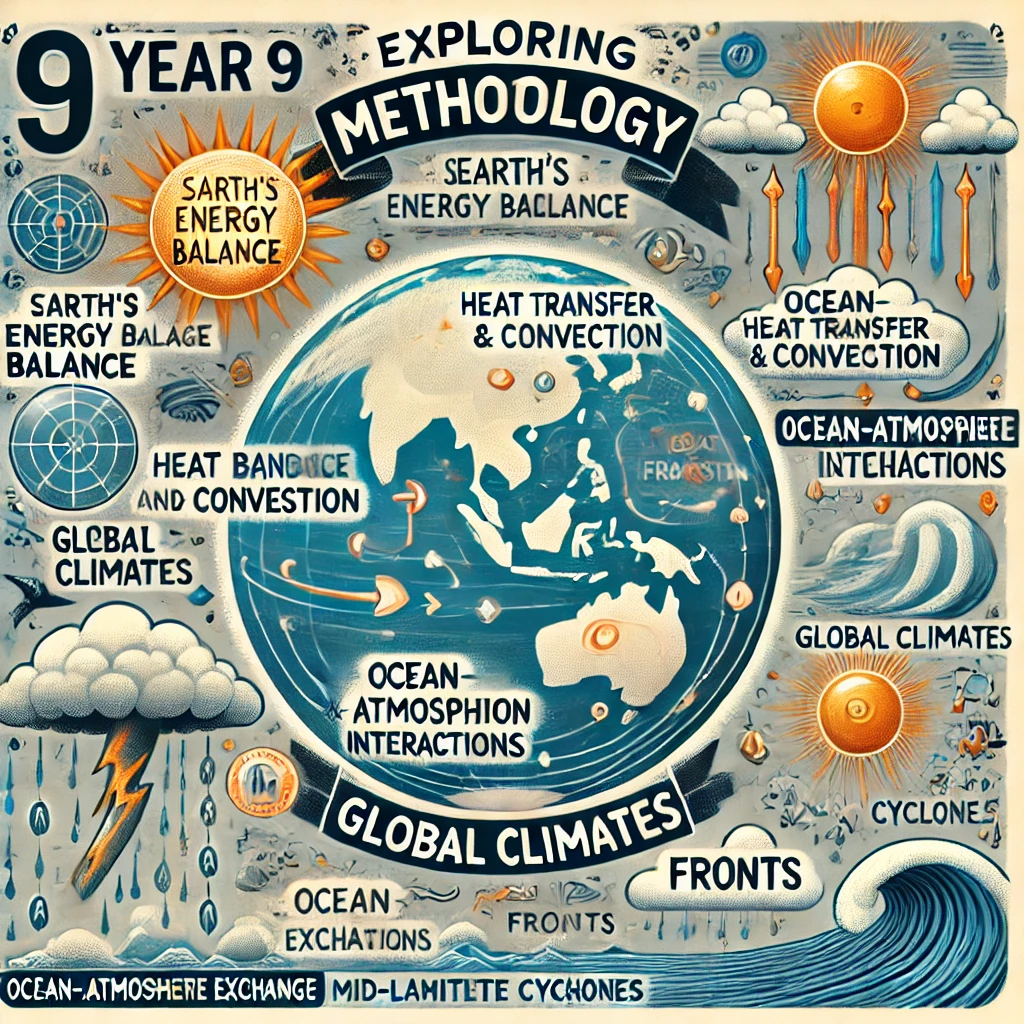Exploring Meteorology: Year 9

About Course
Course Overview: Dive deeper into the dynamic world of meteorology in Year 9! Explore advanced concepts in weather science, climate modeling, and environmental impact. Engage in interactive experiments and projects to gain a comprehensive understanding of meteorological phenomena.
Course Content
Lesson 1: Earth’s Energy Balance
-
Earth’s Energy Balance
Lesson 2: Heat Transfer and Convection
Lesson 3: Ocean-Atmosphere Interactions
Lesson 4: Monsoons and Global Climates
Lesson 5: Fronts and Mid-Latitude Cyclones
Lesson 6: Numerical Weather Prediction
Lesson 7: Severe Thunderstorms and Tornadoes
Lesson 8: Tropical Cyclones and Storm Surges
Lesson 9: Climate Change Science
Lesson 10: Mitigation and Adaptation Strategies
Lesson 11: Meteorological Research Methods
Lesson 12: Environmental Conservation
Student Ratings & Reviews

No Review Yet